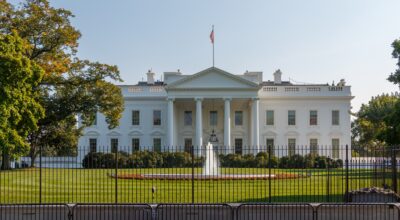
The biggest lesson from Afghanistan we learned 20 years ago
Originally appeared on the Washington Examiner.
The biggest lessons we should learn from Afghanistan happened 20 years ago.
In an effort made famous by the 2009 book Horse Soldiers and the movie 12 Strong, America peaked in its success in Afghanistan at the very beginning.
It’s worth asking how and why that success happened and, critically, why didn’t that success continue?
Following the shock of 9/11, President George W. Bush signed Congress’ Authorization for the Use of Military Force (a declaration of war against the Taliban) just one week after the Twin Towers fell. However, it was not immediately obvious how such a war against the Taliban should be conducted.
The first step was to place Green Berets, Army Special Forces trained in unconventional warfare, in Afghanistan with willing anti-Taliban forces. These efforts were facilitated by CIA operatives already operating in Afghanistan, and they were to be supported by the U.S. Air Force.
This first step was taken largely because it could be done quickly. To some degree, we stumbled into this military approach by default.
On 9/11, the Taliban controlled approximately 90% of Afghanistan. The Air Force began bombing the Taliban on Oct. 7, 2001, with limited effect. The first Green Berets arrived on Oct. 19, 2001, and turned the tide. By the end of 2001, the Taliban had been driven out of all major cities in Afghanistan, and they were on the run.
This was perhaps the single most efficient and successful use of military force to achieve specific strategic goals during our lifetimes.
It was achieved by small units working in tandem with and in support of local fighters, some of whom were enemies themselves. This was the point of greatest success in Afghanistan — something we would do well to remember, particularly today when there is so much consternation about the present-day failure in Afghanistan.
How did we go from such efficient success in just three months to a point of such abject failure 20 years later?
To answer that question, we need to remember two things: First, no foreign force has truly controlled Afghanistan in 3,000 years, and second, our goal was to defeat the Taliban, not control Afghanistan. And by “defeat,” I don’t mean achieve unconditional surrender. Rather, the goal was smaller: to remove the Taliban from a controlling position in Afghanistan with the freedom to plan and train for terrorism in America. Defeating the Taliban was the limit of our strategic interest in Afghanistan.
We did not need to control Afghanistan to defeat the Taliban. In fact, our first three months of astonishing strategic success in partnership with an array of local allies showed the path to success. We should have continued doing exactly what we did for the first three months. Our partnerships should have morphed from primarily military relationships to long-term supportive governmental relationships, recognizing that Afghanistan was a fractured state and that there would not be one overarching federal government that we could rely on to keep the Taliban down.
Instead, the Bush administration sought to impose a federal government in Afghanistan with the goal that it would always be led by an ally that would assist us (or that we could assist) in keeping the Taliban at bay. As part of this strategy, we poured U.S. taxpayer dollars into Afghanistan to “rebuild” the broken country. It is clear now that those dollars were wasted, along with 2,500 American lives that were lost fighting what amounted to a holding action. But this outcome was to be expected.
When considering the possibility of a federal government in Afghanistan, as opposed to a series of local governments, keep in mind that, unlike America’s original 13 colonies, many of the locally controlling elements in Afghanistan are deadly enemies with those in other parts of Afghanistan, e.g., the Northern Alliance and the Pashtun. At the same time, the unifying force for the Taliban, militant Islam, was a universal organizational basis. A federal government fit the Taliban’s organizational focus, Islam, while all others in Afghanistan were organized with a local focus on their tribe or region.
America’s allies were those with the local focus in Afghanistan, not the national-level focus. Instead of pursuing a strategy designed around our allies, the Bush administration sought to impose a national government.
Why should we have expected the negative outcome we are seeing today? Remember, no foreign power can control Afghanistan, and our strategic goal was not to control Afghanistan but to defeat the Taliban.
For reasons that will be speculated on for years to come, the Bush administration appears to have blithely decided that America could break the 3,000-year history of foreign powers attempting to control Afghanistan, and, at the same time, it shifted America’s goal from simply defeating the Taliban to controlling Afghanistan. Afghanistan could not be controlled if we were sustaining numerous fractious elements within the country, and so, our government forced the Afghans to adopt a federal government, and we pushed the various local warlords over whom we now had great influence to participate.
The shift in U.S. strategy to impose a federal government in Afghanistan was a failure from its commencement, and it is now a tragically unfolding disaster before our eyes.
The military lesson of Afghanistan is how successful small units can be in bringing American military power to bear in unconventional ways. And we must abandon what appears to be a near-instinctual desire in the U.S. military (and among the neoconservatives of both parties) to enter every national-level fray with numerically overwhelming military forces of our own.
Afghanistan is not our country. We succeeded when we helped willing Afghans fight for their country by supporting those willing to fight against our shared enemy, the Taliban.
The broader strategic lesson of international relations is that we should give up a significant degree of control of the overall situation in a country such as Afghanistan and instead partner with those who can be convinced to partner with us to pursue shared goals, such as defeating the Taliban.
And that’s it.
No trillion-dollar nation-building. Minimize our exposure to loss of American life and of overcommitment. And avoid never-ending wars with no real exit strategy, all of which must eventually come to an end, as we are seeing so tragically in Kabul.
If ever faced with a similar situation in the future, America should stay with the straightforward and proven plan that brought such success in the first three months in Afghanistan, not the endless plan that followed that brought us almost 20 years of failure, death, and debt.
Ken Cuccinelli is a senior fellow at the Center for Renewing America, the former acting deputy secretary of Department of Homeland Security, and the former acting director of U.S. Citizenship and Immigration Services.




